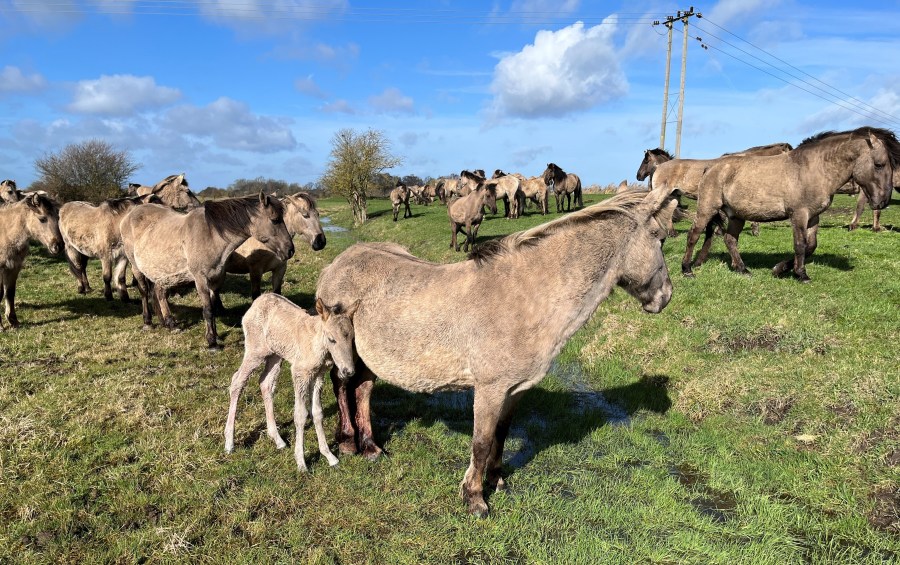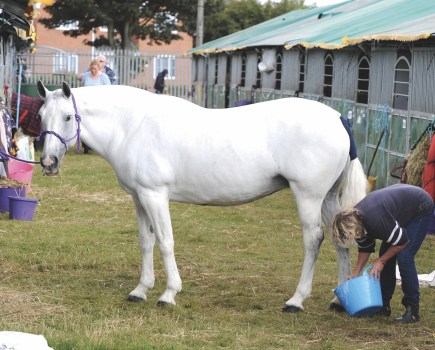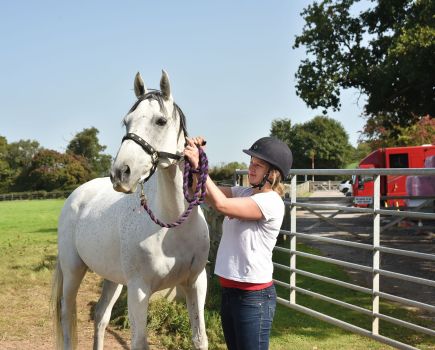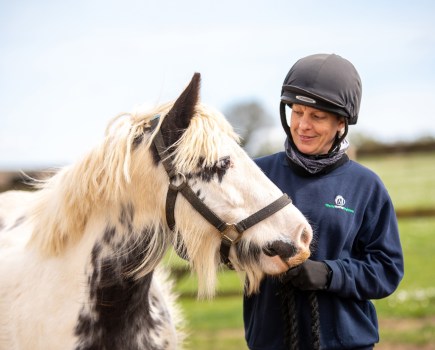The first new foal of the year has joined the Konik herd at the Wicken Fen National Nature Reserve in Cambridgeshire, cared for by the National Trust.
The new arrival coincides with the oldest member of the herd being due to turn 30, continuing the semi-wild herd’s important legacy of maintaining one of Europe’s most important wetlands.
Comprising one of only four fragments of undrained fen in the UK, Wicken Fen is a key habitat for thousands of species of flowers, insects and birds, and plays and important ecological role by locking up carbon in its wet, peaty soil to reduce emissions and thereby helping combat the climate crisis.
The Konik polski, or Koniks, are a hardy breed of European ponies which graze the historic fenland landscape of Wicken Fen. The horses were first introduced to the area by the conservation charity in the early 2000s, together with a herd of Highland cattle, in an effort to make more space for nature on the reserve by clearing persistent shrubbery and move from the previous combination of intensive mowing, cutting and scrub-bashing to more sustainable and climate-friendly conservation grazing.
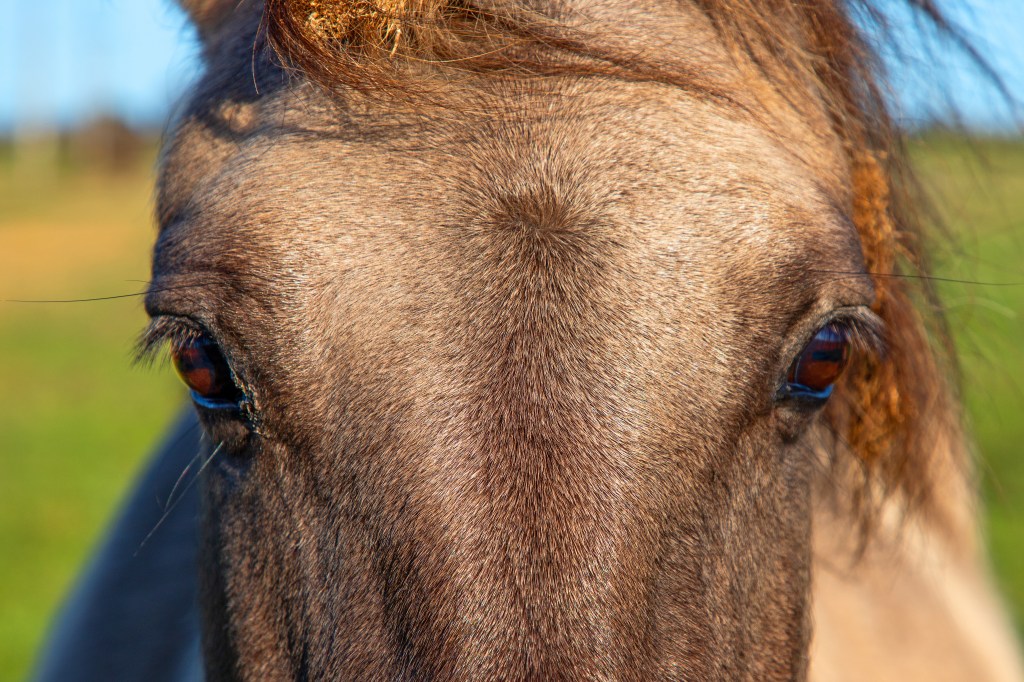
Credit: National Trust Images Mike Selby
Carol Laidlaw, the National Trust’s Grazing Ranger, has looked after the herd for over twenty years.
“Through their grazing and social behaviour, the Koniks and cattle create a slowly changing, varied landscape,” she said. “They each graze in different ways – horses snip off selected plants with their incisors, creating a mosaic of cropped lawns, while cattle pull or tear at vegetation, leaving tussocks. This allows different types of vegetation to thrive and increases the diversity and complexity of habitats available to a wide range of species, from tiny dung beetles to mammals and birds like badgers and bitterns.”
The arrival of the first foal of the season kickstarts this year’s foaling season. As well as the Koniks, the team is also expecting calves to join the grazing herd between early spring and autumn.
“The mares generally conceive about a month after they have foaled and have an 11-month gestation, so we’d expect to see new arrivals around the same time each year,” said Carol. “The breeding season for the Koniks runs roughly from late March to October, but the season is starting to expand a little, presumably due to the milder winters we are having.”
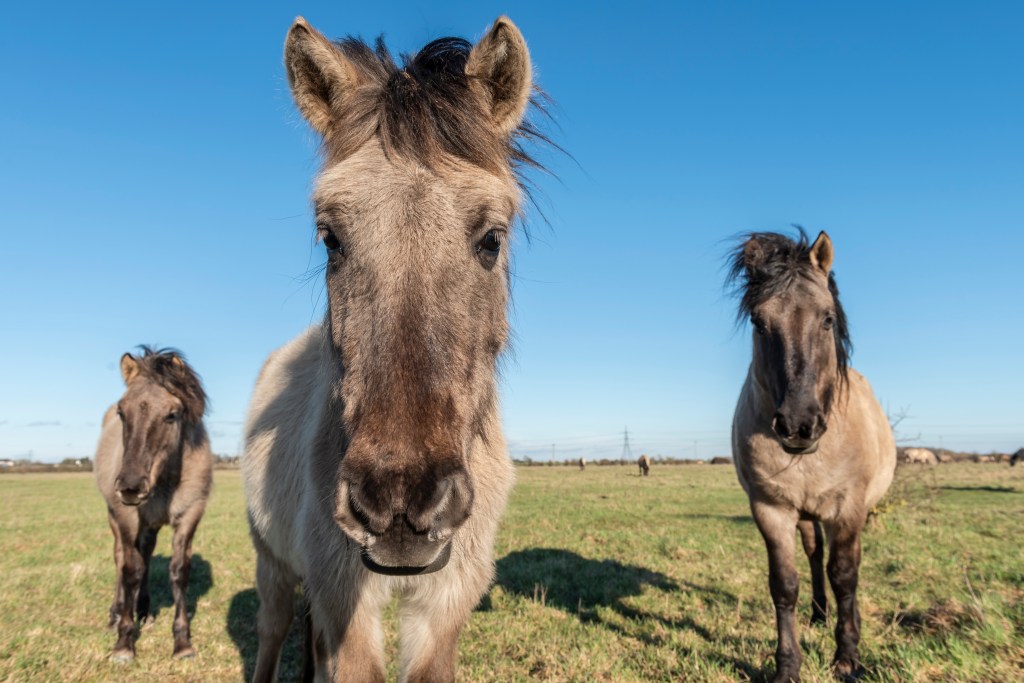
Credit: National Trust Images, Paul Harris
The first foal born on the reserve, named ‘Harry’, arrived in 2005, while the first calf ‘Meadow Rue’ followed a year later in 2006.
“I believe I am known and recognised by the herds – some individuals might actively seek out my company, while others regard me with a wary acceptance,” added Carol.
“The horses form their own social groups, and I interfere with that as little as possible. They tend to move around as one herd, but within it there are little groups. It’s fascinating, watching the different groups, and it is also heart-warming, because we have mares and stallions who show each other a lot of loyalty, and there are groups that have been together for twenty years or more.”
Also this spring, the oldest Konik in the herd – called ‘Tim’, born in 1993 – is set to turn thirty, for which the team are planning a celebration to mark the occasion.
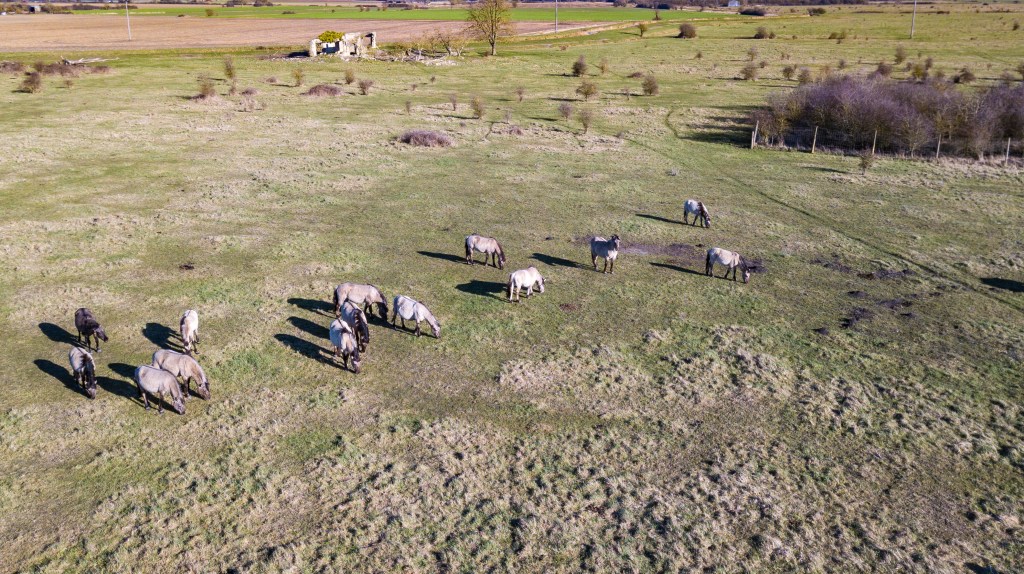
Credit: National Trust Images Paul Harris
Today, Wicken Fen is once again one of the most biodiverse places in the UK, with over 9,000 different species, including fen dandelion and fen violet, as well as reed leopard moths and bitterns calling it their home.
Lead image credit: National Trust Images, Ajay Tegala
Check out our subscription offer

